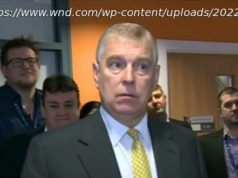For all the uncertainty that Donald Trump has sown in the run-up to his inauguration as president, there’s at least one thing the incoming president can now be said to have clearly defined: The precise nature of “typically and traditionally American” entertainment.
That’s the phrase Tom Barrack, chairman of Trump’s inaugural committee, used on CNN this week to describe what was in store for the president-elect’sinaugural events, including a concert early Thursday evening at the Lincoln Memorial officially billed as the “Make America Great Again! Welcome Celebration.”
Barrack had been asked whether Kanye West , who’s spoken warmly of Trump, might show up to help mark the swearing-in. But though the rapper’s star power would no doubt have been welcome — Thursday’s headliners were the skilled but rusty country singer Toby Keith and the deeply irrelevant rock band 3 Doors Down — West wasn’t invited to perform, Barrack revealed.
“It’s not the venue,” he said.
To some degree, this was typical and traditional Trump-team spin — a way to avoid acknowledging that one more A-list artist (even one as eagerly provocative as West) might have joined the long list of acts who reportedly declined the president-elect’s request.
But Barrack’s identification of West as somehow un-American — because he’s black, one must infer — also indicates a troublingly narrow perspective thought to be widely held inside the new administration.
Whiteness was certainly the model of American identity at Thursday’s concert, both onstage and in the audience.
It was a show that tried to project the promise of “a renewed America,” as actor Jon Voight put it in his opening remarks, with a bill that felt willfully old-fashioned — an embodiment of an earlier America in which nobody had to worry about the appearance (never mind the reality) of diversity.
Much of the throwback vibe was supplied by actual throwbacks, such as the Frontmen of Country, a not-so-supergroup comprising the lead singers of several country acts that haven’t mattered for at least a decade, and 3 Doors Down, whose dreary lite-grunge hits sounded like they’d been in cold storage since the early 2000s.
Then there was Lee Greenwood belting out “God Bless the U. S. A.” for the zillionth time, which inspired an awkward singalong from Trump and assorted members of his family.
One concession to modernity came from the Piano Guys, an irritating group of musical comedians who developed a following on YouTube. Minus that backstory, though, they were just another representation of white middle-class prosperity — the kind Trump dangled grotesquely as a prize to “the inner cities” in his brief closing address.
For the record, people of color were’t invisible Thursday. Sam Moore, of the veteran R&B duo Sam & Dave, opened the show with a stately “America the Beautiful,” accompanied by a large choir of African American singers.
And the Indian American DJ Ravidrums performed, though his fellow DJs might’ve wished he hadn’t: Flailing his arms behind a comically oversized drum kit, this dude was a musical embarrassment, as dubious an ambassador of electronic music as Trump’s people could possibly find.
But neither of those artists enjoyed the prominent placement enjoyed by the other acts. Playing last, Keith did four songs, including the rowdy “Beer for My Horses,” which you had to admire given the sanitized jollity of everything that preceded it.
Indeed, Keith is smarter and more daring than the boot-stomping caricature he encourages. Here he almost made you wonder if he was trolling Trump with his song “American Soldier” and its vision of a “steady” man not looking for glory.
Yet there was no more room for nuance Thursday than there was for the kind of American-ness that Barrack had more or less disavowed.
As Keith finished with “Courtesy of the Red, White and Blue (The Angry American),” you could hear him striving to widen the emotion of that post-9/11 song — to make it available to anyone who might feel protective of this country.
Hopefully his effort wasn’t in vain.
Casey Affleck talks about the way Kenneth Lonergan uses everyday language to convey deep emotion in „Manchester by the Sea. “
For her role as Jackie Kennedy, Natalie Portman says, „It’s not a fashion story,“ but the clothes do tell a story.
Joel Edgerton talks about staying truthful to the real-life story of „Loving. “
Director Nicolas Winding Refn and composer Cliff Martinez discuss their „Neon Demon“ collaboration.
„Manchester By the Sea“ director Kenneth Lonergan discusses writing a quiet character and working with actor Casey Affleck to bring him to life.
„Manchester By the Sea“ director Kenneth Lonergan discusses writing a quiet character and working with actor Casey Affleck to bring him to life.






